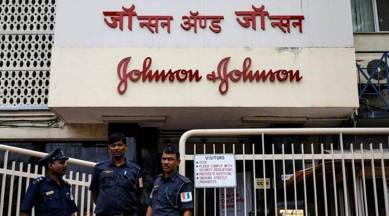Johnson & Johnson ordered to pay $572 million in landmark opioid trial
The amount fell far short of the $17 billion judgment that Oklahoma had sought to pay for addiction treatment, drug courts and other services it said it would need over the next 20 years to repair the damage done by the opioid epidemic.

Written by Jan Hoffman
A judge in Oklahoma on Monday ruled that Johnson & Johnson had intentionally downplayed the dangers and oversold the benefits of opioids, and ordered it to pay the state $572 million in the first trial of a drug manufacturer for the destruction wrought by prescription painkillers.
monthly limit of free stories.
with an Express account.
The amount fell far short of the $17 billion judgment that Oklahoma had sought to pay for addiction treatment, drug courts and other services it said it would need over the next 20 years to repair the damage done by the opioid epidemic.
Still, the decision, by Thad Balkman of Cleveland County District Court, heartened lawyers representing states and cities — plaintiffs in many of the more than 2,000 opioid lawsuits pending across the country — who are pursuing a legal strategy similar to Oklahoma’s. His finding that Johnson & Johnson had breached the state’s “public nuisance” law was a significant aspect of his order.
Balkman was harsh in his assessment of a company that has built its reputation as a responsible and family-friendly maker of soap, baby powder and Band-Aids.
In his ruling, he wrote that Johnson & Johnson had promulgated “false, misleading, and dangerous marketing campaigns” that had “caused exponentially increasing rates of addiction, overdose deaths” and babies born exposed to opioids.
Sabrina Strong, a lawyer for Johnson & Johnson, one the world’s biggest health care companies, said, “We have many strong grounds for appeal and we intend to pursue those vigorously.”
Johnson & Johnson, which contracted with poppy growers in Tasmania, supplied 60% of the opiate ingredients that drug companies used for opioids like oxycodone, the state had argued, and aggressively marketed opioids to doctors and patients as safe and effective. A Johnson & Johnson subsidiary, Janssen Pharmaceuticals, made its own opioids — a pill whose rights it sold in 2015, and a fentanyl patch that it still produces.
Balkman said the $572 million judgment could pay for a year’s worth of services needed to combat the epidemic in Oklahoma.
The case was also closely watched by some two dozen opioid makers, distributors and retailers that face more than 2,000 similar lawsuits around the country.